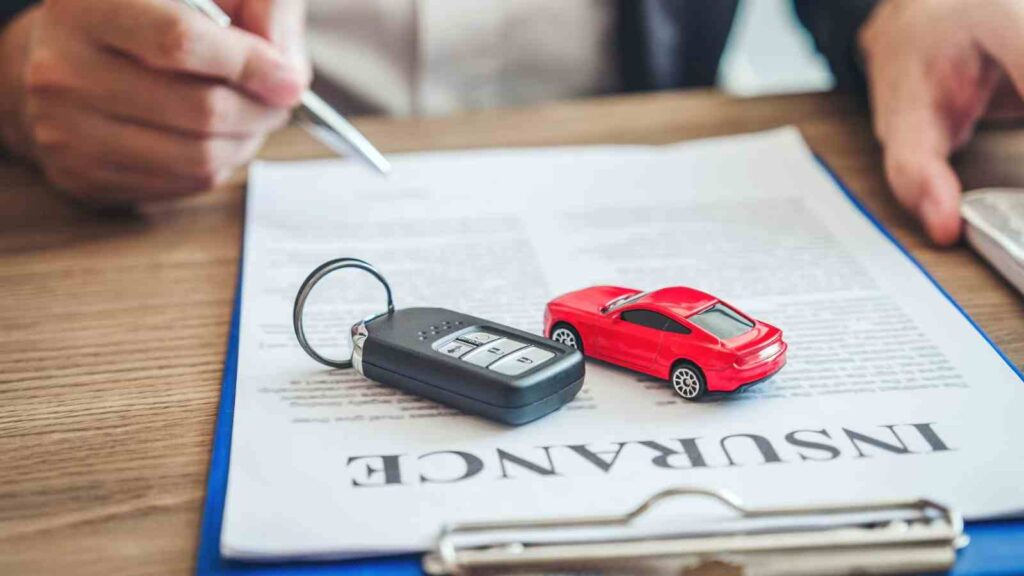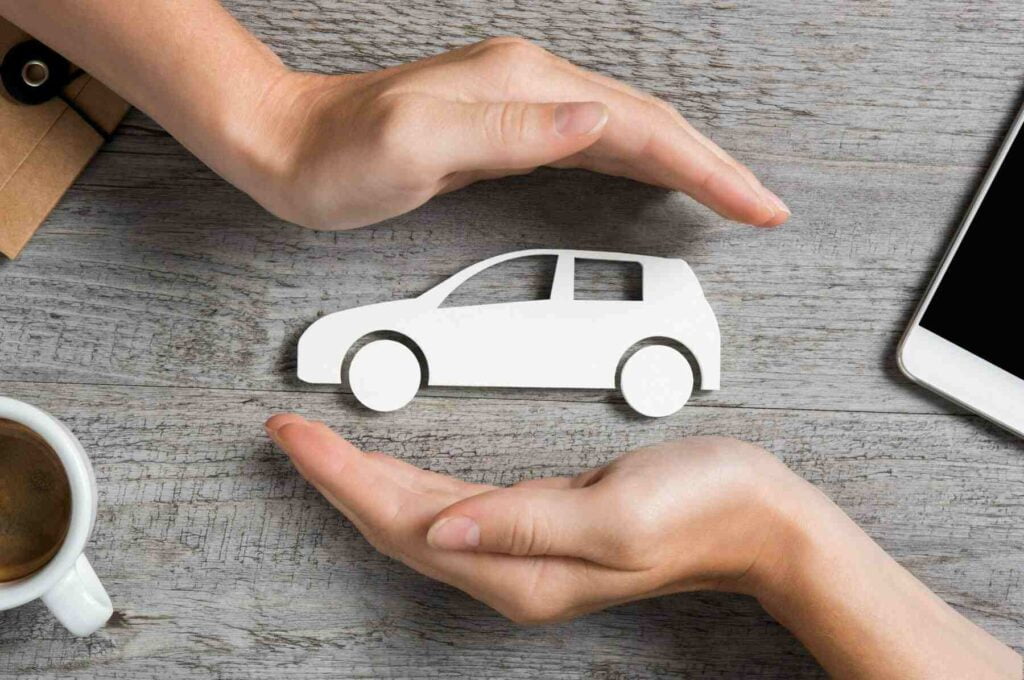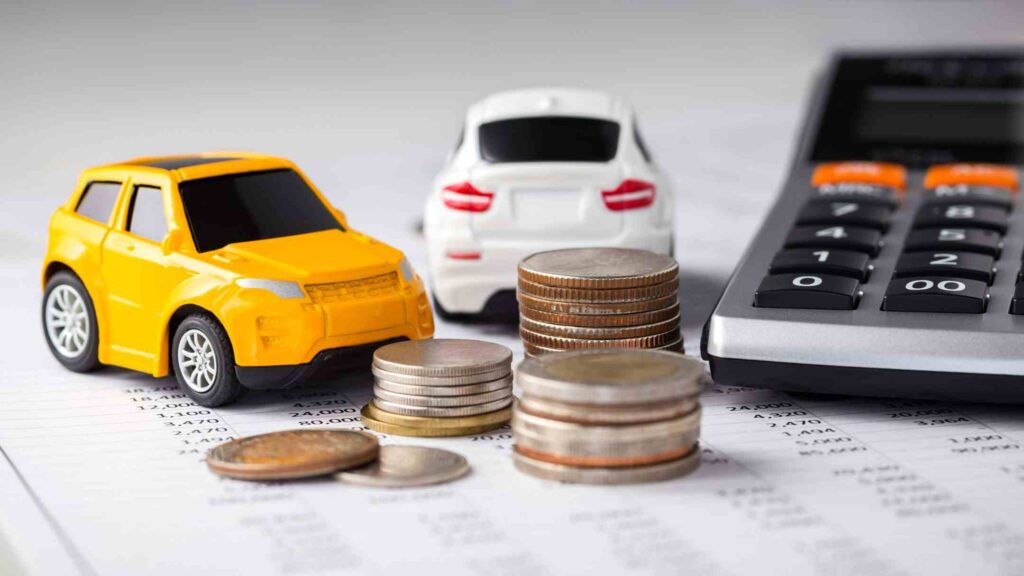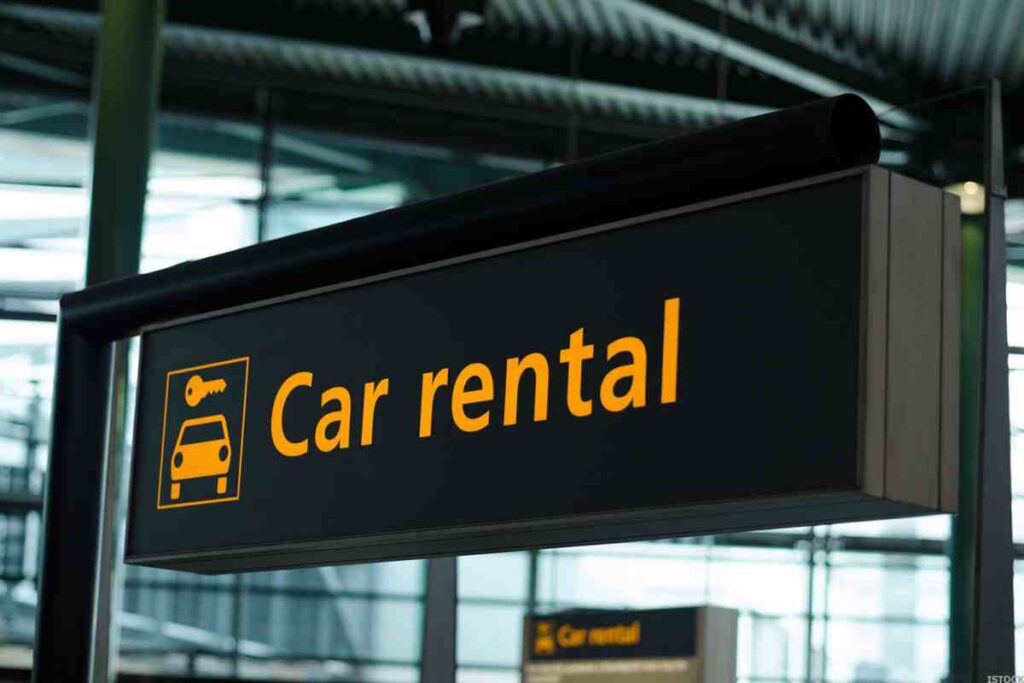Whether you’re a small business owner using your personal car for work or running a larger company with a fleet of vehicles, understanding car insurance is crucial. A common question that pops up is: “Is car insurance more expensive if it’s for business use?” The short answer is, often, yes. But why is that, and what factors drive up these costs?
In this article, we’ll break down the ins and outs of car insurance for business use. We’ll explain what “business use” means for your vehicle, how it impacts your insurance premiums, and the different types of business car insurance available. Plus, we’ll share some tips on how you might be able to lower these costs.
Personal vs. Commercial Car Insurance
Here are the key differences between personal and commercial car insurance:

- Ownership and Use: Personal car insurance is designed for individuals who use their vehicles for personal activities. Commercial car insurance is necessary when a vehicle is owned by a business and used for business purposes, such as transporting goods or clients.
- Coverage Scope: Commercial car insurance typically offers broader coverage to include various business-related liabilities and risks that personal car insurance does not cover.
- Liability Limits: Commercial car insurance policies usually have higher liability limits to protect businesses from significant financial losses that can arise from accidents involving their vehicles.
- Vehicle Types: Commercial insurance covers a wider range of vehicle types and sizes, including heavy-duty vehicles like dump trucks or tow trucks, which are not typically covered under personal policies.
- Driver Coverage: Commercial policies often include all employees as insured drivers, allowing any employee with a valid license to operate the business vehicles.
- Cost of Policy: Due to the increased coverage and higher liability limits, commercial car insurance policies can be more expensive than personal car insurance policies.
Why the Distinction Matters: The distinction between personal and commercial car insurance is important because of the different risks involved. Vehicles used for business often travel more miles, carry valuable equipment, or transport clients, all of which increase risk. If a vehicle is used for business and only has personal insurance, some claims may not be covered, leaving the owner to pay out of pocket for damages or liability.
For individuals, using personal car insurance for business use can lead to the denial of a claim or cancellation of the policy. For businesses, not having the right type of insurance can lead to significant financial loss and legal complications. Therefore, it’s crucial for both businesses and individuals to have the appropriate type of insurance based on how they use their vehicles.
Risk Assessment
Insurers assess the risk of vehicles used for business purposes differently from those used for personal use due to several factors:
Mileage and Wear and Tear: Cars used for business often log more miles than those used for personal purposes. More miles mean more exposure to risk, including accidents, breakdowns, and wear and tear. This increased risk can lead to higher premiums.
Type of Work: The nature of the work can also affect the risk assessment. For example, a real estate agent who occasionally drives clients to showings may have a lower risk profile than a delivery service or a taxi service that is on the road constantly.
Cargo: Vehicles used for business often carry valuable equipment or goods. If these items are damaged or stolen, the costs can be significant. Insurers take this into account when setting premiums.
Liability Risks: Business vehicles can also pose greater liability risks. For example, if a business vehicle is involved in an accident, the business could be sued for damages. This risk is often reflected in higher liability insurance premiums.
Driver’s Profile: If employees are driving the vehicle, insurers will consider their driving records, experience, and age. A business with drivers who have clean driving records may enjoy lower premiums than one with drivers who have a history of accidents or violations.
Vehicle Type: Commercial vehicles are often larger and cause more damage in an accident. Insurers often charge more to insure these types of vehicles.
In conclusion, while both personal and commercial car insurance policies consider factors like the driver’s profile and the type of vehicle, commercial policies also take into account the unique risks associated with business use. This leads to different pricing structures, often making commercial car insurance more expensive than personal car insurance.
Liability Limits
Liability limits are a critical component of car insurance policies, and they tend to be higher for commercial policies due to the increased risks associated with business operations. Here’s why:
- Higher Risk Exposure: Businesses often face higher risk exposure than individuals because their vehicles are on the road more frequently and for longer periods. This increases the likelihood of accidents.
- Greater Financial Consequences: Accidents involving business vehicles can result in more significant financial consequences due to the potential for multiple injuries or extensive property damage, especially if heavy or specialized vehicles are involved.
- Legal Requirements: Commercial vehicles may be subject to stricter legal requirements, including higher mandatory liability limits to ensure adequate coverage in the event of an accident.
- Protecting Business Assets: Higher liability limits help protect a business’s assets. In the event of a lawsuit, insufficient coverage can lead to out-of-pocket expenses that could jeopardize the financial stability of the business.
- Contractual Obligations: Businesses may have contractual obligations that require them to carry higher liability limits. Clients or partners may mandate certain coverage levels before entering into agreements.
- State and Federal Regulations: Commercial vehicles often have to comply with both state and federal regulations, which may require specific liability coverage limits that are typically higher than those for personal vehicles.
- Business Reputation: A business’s reputation can be at stake in the event of an accident. Higher liability limits help ensure that claims can be settled without negatively impacting the company’s public image.
- Employee Protection: Businesses have a responsibility to protect their employees while they’re on the job. Higher liability limits in commercial policies help cover the costs of injuries to employees who are driving as part of their work duties.
- Combined Single Limits (CSL): Commercial policies often offer CSL, which is a single number that applies to the total payouts per accident, not separating bodily injury and property damage. This can provide more flexibility in covering the costs of an accident.
For these reasons, commercial auto insurance policies typically offer higher liability limits than personal auto insurance policies. While personal policies might have limits sufficient for individual needs, commercial policies reflect the broader scope of protection necessary for businesses operating vehicles as part of their daily activities.
Types of Coverage
Commercial car insurance policies typically include a range of coverages to protect businesses against various risks associated with vehicle use. Here are the main types of coverage that are commonly included:
- Liability Insurance: This is a fundamental part of commercial car insurance, covering damages for bodily injury and property damage that your business is legally responsible for due to a car accident.
- Physical Damage Insurance: This includes both collision and comprehensive coverage. Collision coverage pays for damages to your vehicle from an accident, while comprehensive coverage pays for non-collision damages, such as theft, vandalism, or natural disasters.
- Uninsured/Underinsured Motorist Coverage: This protects you if you’re involved in an accident with a driver who doesn’t have insurance or doesn’t have enough insurance to cover the damages.
- Medical Payments Coverage: Also known as MedPay, this coverage pays for medical expenses for you and any passengers in your vehicle in case of an accident, regardless of who is at fault.
- Bodily Injury Liability Insurance: It covers the costs associated with injuries that you or an employee may cause to other people in an accident.
- Property Damage Liability Insurance: This covers the costs of damages to another person’s property if you or an employee are at fault in an accident.
- Other Coverages: Depending on the policy, other coverages can include towing and labor, rental reimbursement, and auto loan or lease gap coverage, which covers the difference between what you owe on your vehicle and its actual cash value in the event it’s totaled.
These coverages are designed to provide comprehensive protection for businesses that rely on vehicles for their operations, ensuring that they are financially protected against a wide range of incidents and accidents.
Factors Influencing Premiums
Here are some key factors that influence the cost of commercial car insurance premiums:
- Type of Vehicle: The make, model, and year of the vehicle can impact the cost. Commercial vehicles are often larger and more expensive to repair or replace than personal vehicles.
- Vehicle Usage: How the vehicle is used can also affect the cost. Vehicles used for tasks like delivery or heavy transport typically have higher premiums due to increased risk.
- Driving Records: The driving records of anyone who will be driving the vehicle can influence the cost. Drivers with clean records are likely to result in lower premiums.
- Location: The location of the business can impact the cost. Areas with high traffic or high rates of accidents or theft can lead to higher premiums.
- Coverage Limits and Deductibles: Higher coverage limits and lower deductibles can provide more protection, but they can also increase the cost of the policy.
- Number of Vehicles: The number of vehicles a business needs to insure can also impact the cost. More vehicles mean more risk, which can lead to higher premiums.
- Security Measures: Vehicles equipped with security features like alarms or GPS tracking devices may qualify for discounts on premiums.
- Claims History: Businesses with a history of insurance claims may face higher premiums.
Remember, each insurance company may weigh these factors differently, so it’s always a good idea to shop around and compare quotes from different insurers.
Discounts and Savings
Businesses can employ several strategies to save on commercial car insurance costs. Here are some effective ways:
- Bundling Policies: Combining multiple insurance policies with the same provider, such as property insurance and business interruption with commercial auto insurance, can lead to discounts.
- Higher Deductibles: Opting for higher deductibles can reduce premium costs, but it’s important to choose a deductible that the business can afford to pay out of pocket if necessary.
- Seasonal Insurance: For seasonal businesses, reducing coverage during off-peak times or opting for a seasonal policy can help save money while maintaining continuous coverage.
- Pay in Full or EFT: Paying the premium in full or using Electronic Funds Transfer (EFT) to handle payments can avoid processing fees and sometimes result in discounts.
- Safe Driver Discounts: Employing drivers with clean driving records can qualify for discounts. Regularly training drivers on safety can also help maintain a good driving record.
- Shop Around: It’s beneficial to compare quotes from different insurers to find the best rates and coverage that suit the business’s specific needs.
- Risk Management: Implementing risk management practices, such as installing safety devices in vehicles, can lower the chances of claims and thus reduce insurance costs.
- Review Coverage Regularly: As the business evolves, so do its insurance needs. Regularly reviewing and adjusting coverage can ensure that the business is not over-insured.
Will My Insurance Cover Me If I Drive Someone Else’s Car?
By exploring these options and discussing them with their insurance provider, businesses can potentially reduce their commercial car insurance premiums without compromising on the necessary coverage.
Legal and Tax Implications
The legal requirements for businesses to carry commercial car insurance vary by state, but there are some general principles that apply:

- Mandatory Coverage: Most states require businesses with vehicles to have commercial auto insurance. This is to ensure that there is financial responsibility in case of an accident where the business vehicle is at fault.
- State-Specific Requirements: Each state has its own minimum coverage requirements for bodily injury liability and property damage liability. Businesses must comply with these state-specific regulations to operate legally.
- Proof of Financial Responsibility: All states require businesses to demonstrate the ability to compensate someone if they or an employee are at fault in an accident. Commercial auto insurance fulfills this requirement.
- Federal Regulations: For businesses that move people or goods across state lines, there are also federal regulations that mandate coverage based on the vehicle’s weight, number of passengers, and type of goods transported.
As for the tax implications:
- Tax Deductibility: Commercial car insurance premiums are typically tax-deductible as a business expense. This can potentially reduce the amount of taxes owed by the business for the year.
- Actual Expense Method: If a business uses the actual expense method for tax deductions, it can include the cost of commercial car insurance premiums as part of the operating expenses for the vehicle.
- Standard Mileage Rate: Businesses may also opt to use the standard mileage rate for deductions. If this method is chosen, it’s assumed to cover all vehicle-related costs, including insurance, and separate deductions for insurance premiums are not taken.
- Mixed-Use Vehicles: If a vehicle is used for both personal and business purposes, the deductibility of the insurance premium is based on the percentage of business use. Only the portion of the premium that corresponds to business use can be deducted.
Businesses need to consult with a tax professional to understand the specific tax benefits and obligations related to commercial car insurance premiums and to ensure compliance with all legal requirements.
FAQs
Q 1. What is the process to switch from personal to commercial car insurance?
Ans. The process usually involves contacting your insurance provider, discussing your business needs, and getting a quote for a commercial policy. You may need to provide additional information about your business and vehicle usage. Once you agree to the terms and switch, your personal policy will be replaced by the commercial one.
Q 2. Can I use my personal car for business and still be covered under my personal car insurance?
Ans. It depends on the extent of the business use. Occasional business use may be covered under a personal policy, but regular or primary business use typically requires a commercial policy. It’s best to discuss this with your insurance provider to ensure you have the right coverage.
Q 3. Are there specific types of businesses that require commercial car insurance?
Ans. Any business that uses a vehicle for business purposes should consider commercial car insurance. This includes delivery services, taxi services, construction companies, sales professionals, and more.
Q 4. How often should I review my commercial car insurance policy?
Ans. It’s a good idea to review your policy at least once a year, or whenever there are significant changes to your business, such as adding new vehicles or drivers.
Q 5. What information do I need to provide to get a quote for commercial car insurance?
Ans. You’ll typically need to provide information about your business, the vehicle(s) you want to insure, how they’ll be used, who will be driving them, and the type and level of coverage you want.
Q 6. What is a commercial car insurance declaration page and what information does it contain?
Ans. A commercial car insurance declaration page is a summary of your policy. It typically includes information like the policy number, policy period, types and limits of coverage, deductibles, premium amount, and information about the insured vehicles and drivers.
Conclusion
In conclusion, the use of a car for business purposes can indeed lead to higher insurance premiums. This is due to the increased risks and coverage needs associated with business operations. However, it’s crucial to remember that every business is unique, and so are its insurance needs. Factors such as the type of vehicle, how it’s used, the driving records of those driving it, and the location of the business can all influence the cost of commercial car insurance.
While it might be tempting to stick with personal car insurance for its lower premiums, it’s important to remember that not having the right coverage can lead to significant financial loss and legal complications. Therefore, it’s always worth investing in the right commercial car insurance policy that fits your business needs. And remember, there are ways to save on commercial car insurance, such as bundling policies, implementing safe driving programs, and regularly reviewing your policy. So, while commercial car insurance may be more expensive, it’s an investment in the protection and longevity of your business.

Join Shubham, a finance enthusiast with a mission to empower readers with the knowledge and tools to achieve financial freedom. Discover smart financial advice and unlock your financial potential.


